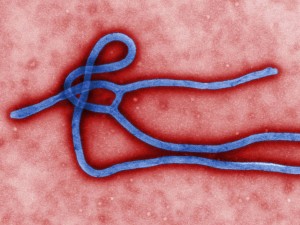Former boss of Microsoft Bill Gates believes progress is being made in the battle against Ebola in West Africa.
News that the number of new cases in Liberia is declining suggests the tide may be turning, he told the BBC.
He is hopeful of similar gains in Sierra Leone and Guinea.
Mr Gates, who has committed $50m to the international effort, believes an important factor is educating local communities in the handling of bodies of Ebola victims.
In London to deliver a lecture to MPs and peers at Westminster, Mr Gates – who runs a major charitable foundation with his wife Melinda – said the commitment of resources by major economies, including the UK, had been impressive.
“Ever since the big intervention that started in August I think the world’s done quite well – the United States and the UK stepping up with the most resources.
“In Liberia you’re seeing the cases flatten or decline and if we can get the funeral practices to change, get people treated, we’re likely to see that same thing in the other countries.”
He said that the fact that the three main countries affected by the outbreak – Liberia, Sierra Leone and Guinea – had very broken down health systems meant that the disease got to a reasonably high level before it was evident.
He said that whatever progress was made in the next few months on Ebola, a big challenge remained – ensuring local healthcare systems across Africa were better prepared for other disease outbreaks and epidemics. Better data, surveillance systems and research and development were needed, he said, so the international medical response could be faster and more effective next time.
Medecins Sans Frontieres reported the fall in Ebola cases in Liberia. But it warned that the outbreak was far from over and that case numbers could rise again as they have in Guinea following earlier declines.
The medical charity is calling for a change in tactics in Liberia. It says treatment and isolation centres now have spare capacity so the focus should shift to rapid response teams that can finish off any local flare-ups of Ebola in towns and villages.
In his speech to peers and MPs, Mr Gates also covered his foundation’s work in reducing malaria cases in the world’s poorest nations. He said a turning point had been reached in the battle to eliminate the disease but more support was needed to continue the reduction in death rates. He said it was vital the UK sustained its current focus and spending levels through the next Parliament.
SOURCE : BBC World News






